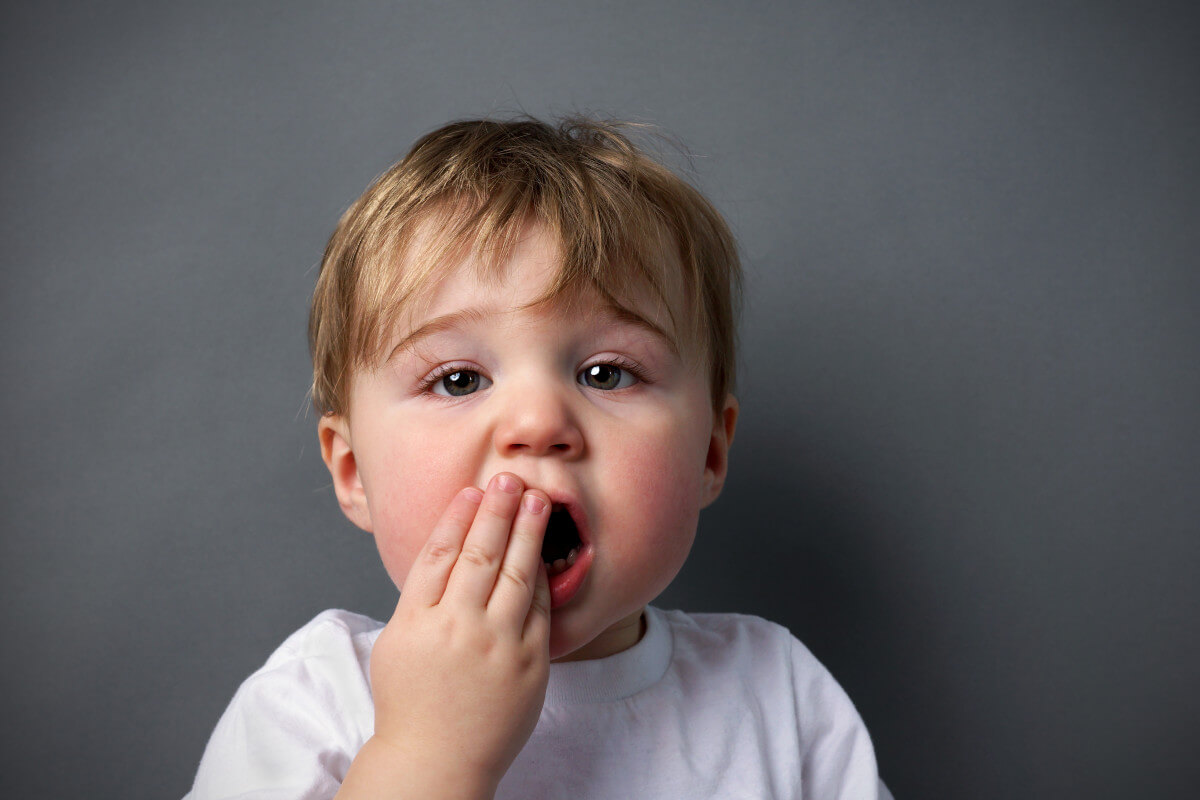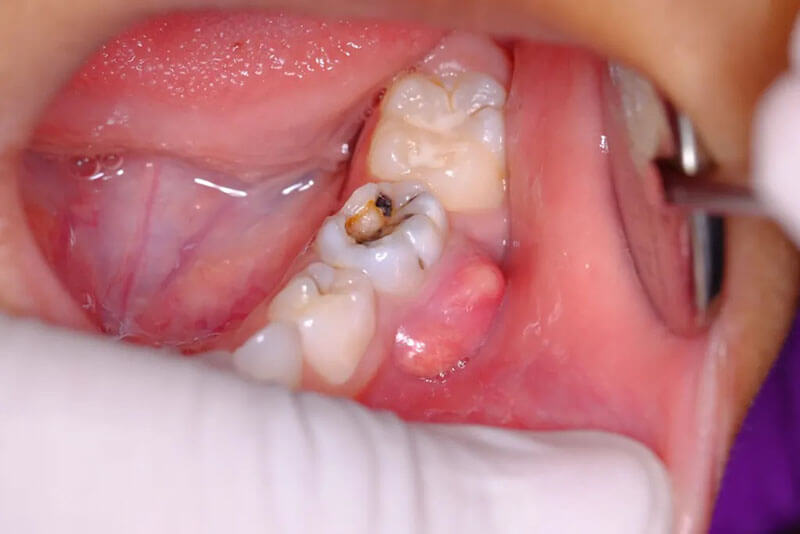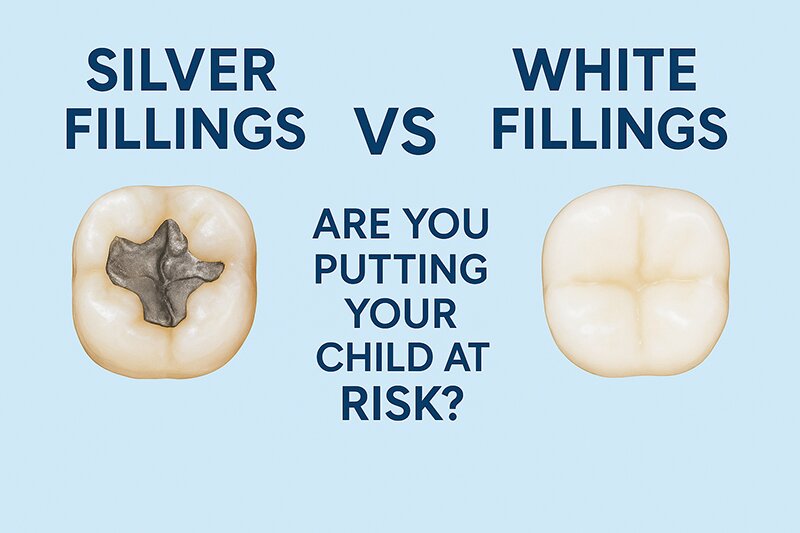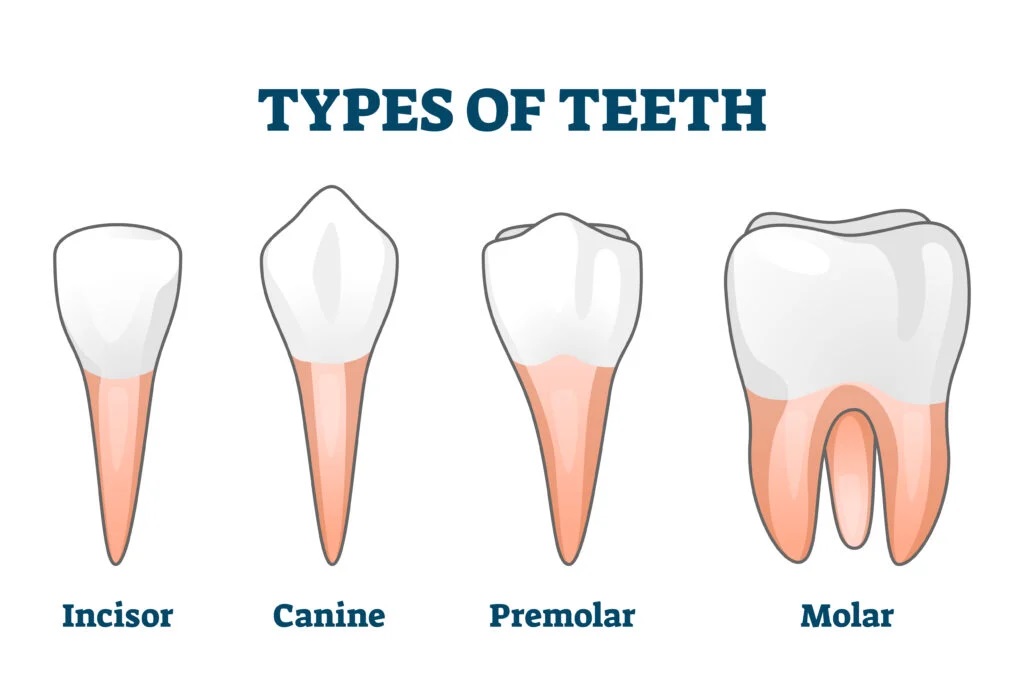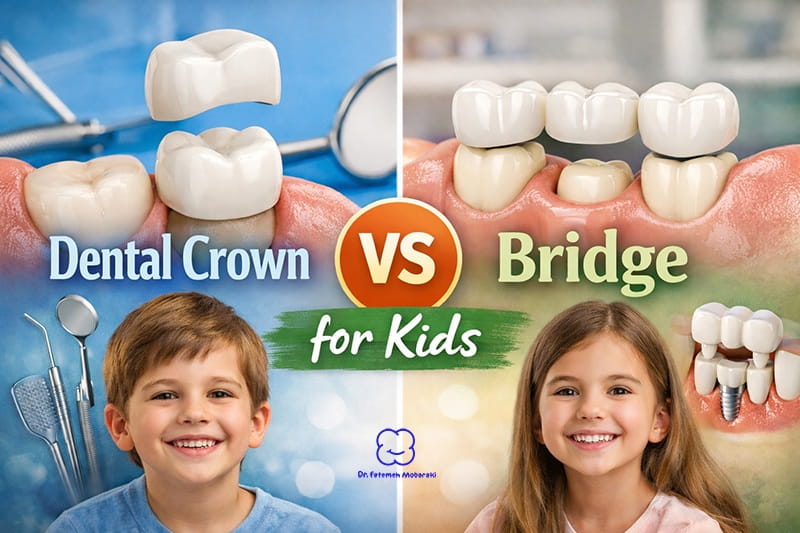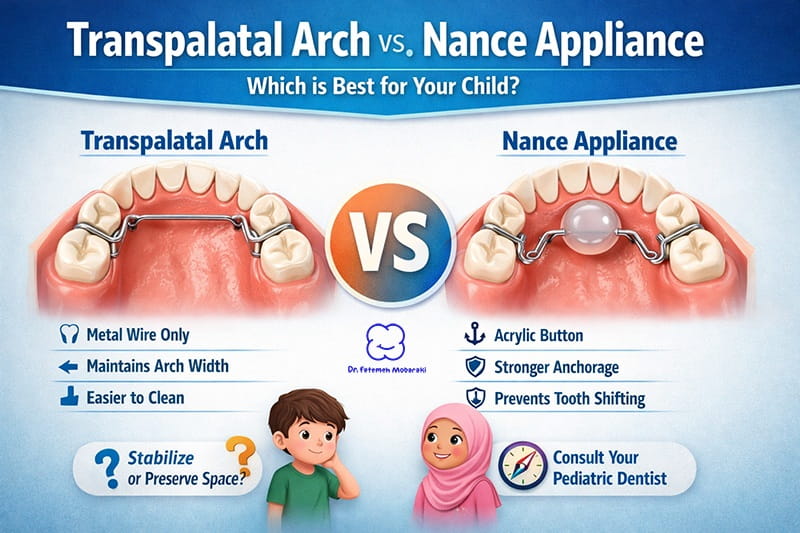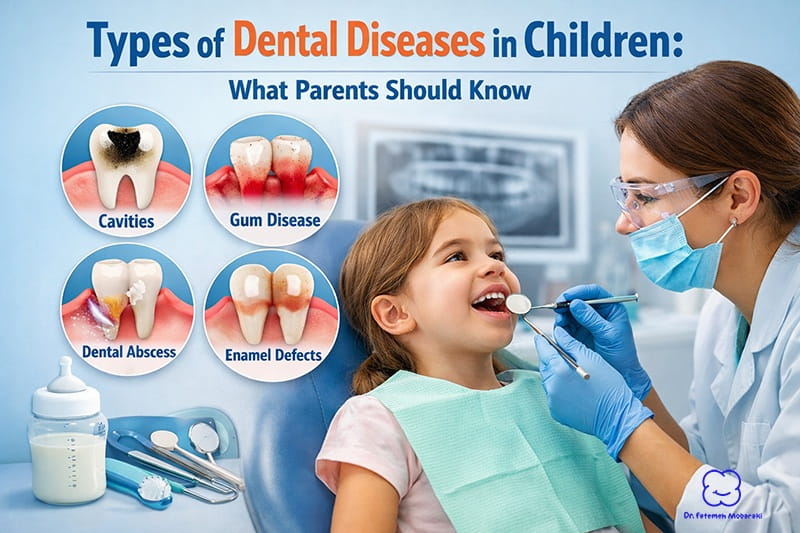Common dental injuries in children are quite frequent and can happen at any time, whether it’s during playtime, sports, or even at home. As parents, it can be worrying to see your child in pain or discomfort after a dental injury. That’s why it’s essential to understand how to manage these situations effectively. Immediate and appropriate action can make a significant difference in preserving your child’s dental health. If you’re ever unsure or need urgent help, our clinic offers children’s dental injury care and emergency dental care for kids to ensure your child gets the best possible treatment quickly.
Understanding Common Dental Injuries in Children
Children are active, energetic, and sometimes prone to accidents, which makes them more likely to experience dental injuries. Here are some of the most common dental injuries in children and how parents can handle them effectively.
1. Chipped or Fractured Teeth
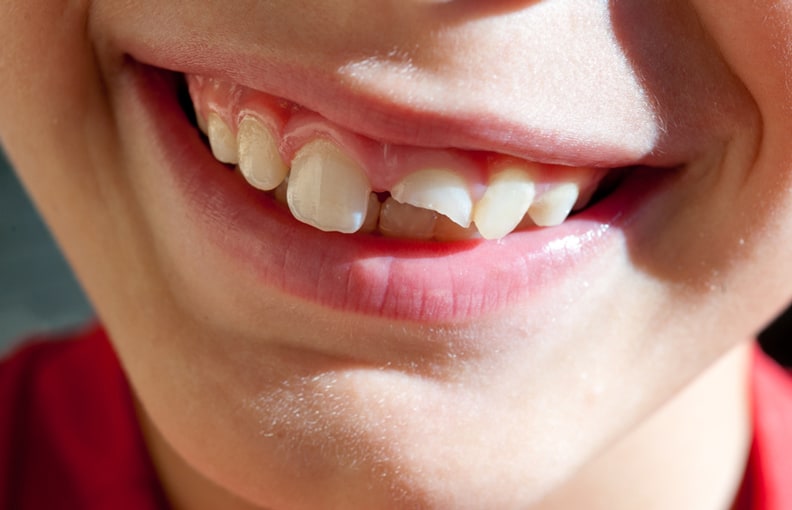
A chipped or fractured tooth is one of the most common dental injuries in children. It can happen if a child falls, gets hit during sports, or bites down on something hard.
How to Handle It:
If your child chips or fractures a tooth, the first step is to rinse their mouth with warm water to keep the area clean. If there is any bleeding, apply gentle pressure with a clean piece of gauze. Save any pieces of the broken tooth, as they might be useful for repair. Make sure to contact your dentist as soon as possible for further treatment. In Jumeirah, you can visit our kids’ dentist, who can assess the damage and determine whether the tooth can be restored.
2. Knocked-Out Tooth
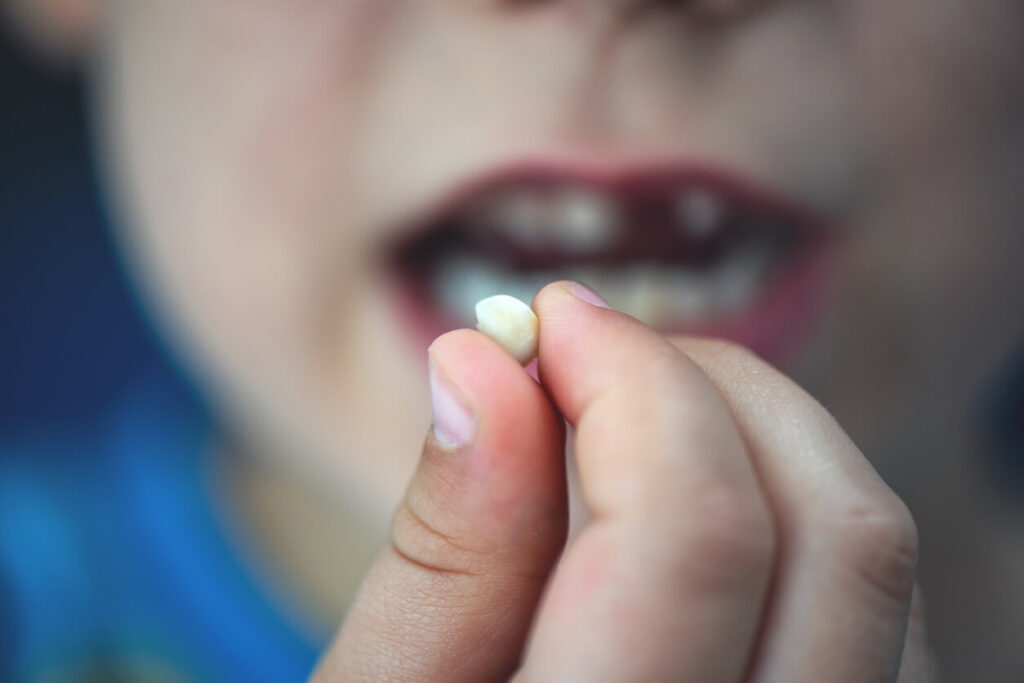
Having a tooth completely knocked out is a more serious dental emergency. Quick action can often save the tooth, but it’s crucial to handle it properly.
How to Handle It:
For a knocked-out permanent tooth, pick it up by the crown (avoid touching the root) and rinse it gently with water. If possible, place the tooth back in its socket, making sure it is facing the correct way. If you cannot reinsert it, keep it in a container of milk or saline solution and get to your dentist immediately. For baby teeth, do not try to reinsert them, as it can damage the permanent tooth developing underneath. Seeking children’s dental injury care promptly is crucial to managing such injuries effectively.
3. Tooth Intrusion
A tooth intrusion occurs when a tooth is driven back into the jawbone. This injury is more common in baby teeth and can be quite concerning for parents.
How to Handle It:
If your child experiences a tooth intrusion, avoid trying to reposition the tooth yourself. Call your dentist right away, as they will need to assess whether the tooth will need to be left alone to naturally re-emerge or if other treatment is required.
4. Loose or Displaced Tooth
Sometimes, an impact can cause a tooth to become loose or shift out of place without being completely knocked out.
How to Handle It:
If your child’s tooth is loose or has moved out of its normal position, avoid trying to reposition it yourself, as this could cause further damage. Offer your child a soft diet to avoid additional strain on the tooth, and see a dentist promptly to assess the injury.
Soft Tissue Injuries
Besides injuries to the teeth, children can also suffer from soft tissue injuries involving the lips, gums, cheeks, or tongue. These injuries can be quite painful and may result in a lot of bleeding.
How to Handle Soft Tissue Injuries:
- Rinse your child’s mouth with warm saltwater to reduce the risk of infection.
- Apply a clean cloth or gauze to the bleeding area, and press down gently.
- If the bleeding does not stop within 10-15 minutes, visit your dentist or the nearest emergency room.
Prevention Tips for Dental Injuries
While it’s not always possible to prevent accidents, there are several steps you can take to minimize the risk of dental injuries for your child:
1. Use Mouthguards for Sports
If your child participates in any sport where there is a risk of facial injury, such as football, hockey, or even cycling, make sure they wear a properly fitted mouthguard. Mouthguards are one of the best ways to prevent chipped, fractured, or knocked-out teeth.
2. Childproof Your Home
For younger children, childproofing your home can reduce the risk of falls and accidents. Use safety gates, cushion sharp edges of furniture, and always supervise toddlers during playtime.
3. Encourage Safe Habits
Teaching your child to avoid chewing on hard objects, such as ice or pencils, can help prevent chipped or broken teeth. Additionally, make sure they understand the importance of not using their teeth to open things, as this can lead to fractures.
When to See a Dentist
In many cases of dental injury, seeing a dentist is necessary to assess the extent of the damage and determine the best course of action. Any time your child experiences trauma to their teeth, gums, or surrounding areas, it’s best to schedule an appointment as soon as possible. Our kids dentist in Jumeirah is always ready to help parents navigate these stressful situations and ensure the best care for their child’s dental health.
Emergency Dental Care for Kids in Jumeirah
At our pediatric dental clinic, we understand how stressful it can be when your child experiences a dental injury. That’s why we offer emergency dental care for kids, ensuring they get the prompt treatment they need. Whether it’s a chipped tooth, a knocked-out tooth, or any other dental emergency, our team is here to help.
We provide a child-friendly environment where your little one can feel comfortable and at ease, even during emergencies. Our experienced pediatric dentists are equipped to handle all types of dental injuries, providing expert care to help preserve your child’s smile.
Long-Term Care After a Dental Injury
After your child has received treatment for a dental injury, ongoing care is crucial to ensure proper healing and prevent further complications. Here are some tips for long-term care:
1. Follow-Up Visits
It’s important to attend any follow-up visits recommended by your dentist to monitor the healing process. This is especially true for injuries involving permanent teeth or those that required repositioning or splinting.
2. Maintain Good Oral Hygiene
Keeping your child’s mouth clean after a dental injury is crucial to prevent infections. Encourage gentle brushing and flossing around the injured area, and consider using an antiseptic mouthwash if recommended by your dentist.
3. Soft Diet
Immediately after the injury, a soft diet can help minimize pain and avoid further damage to the affected area. Foods like yogurt, mashed potatoes, and smoothies are great options until your child is ready to resume normal eating.
Conclusion
Common dental injuries in children can be stressful, but knowing how to handle them properly can make all the difference. Whether it’s a chipped, knocked-out, or displaced tooth, quick action and the right care are essential for protecting your child’s smile. If your child experiences a dental injury, don’t hesitate to contact our clinic for children’s dental injury care and emergency dental care for kids. Our kids dentist in Jumeirah is always ready to provide compassionate and effective care, ensuring your child’s teeth are in the best possible hands.
Are Baby Teeth Worth Saving After an Injury?
Yes, baby teeth are important for maintaining proper spacing for the permanent teeth that will eventually replace them. Even if the baby tooth is injured, it’s still crucial to have it assessed and treated by a dentist to avoid complications that could affect the developing permanent teeth.
How Can I Tell if a Dental Injury Is Serious?
If your child is in significant pain, the tooth is completely knocked out, or there is excessive bleeding, these are indicators that the injury is serious. In such cases, it’s important to seek emergency dental care for kids right away.
What Should I Do If My Child Is Afraid of the Dentist After an Injury?
Dental injuries can be traumatic for children, leading to anxiety about visiting the dentist. At our clinic, we focus on creating a comfortable and child-friendly atmosphere to help ease your child’s fears. We use gentle techniques and explain each step of the treatment in a way that is easy for them to understand.

